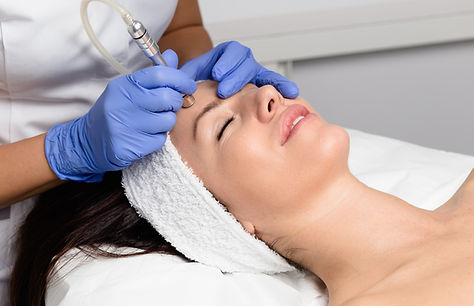Aesthetic Medicine
Aesthetic medicine refers to facial treatments that do not involve a surgical intervention carried out to enhance the look of a person and hence, his/her self-esteem. It largely concerns itself with physical beauty being a discipline involved with the enhancement of skin quality among other aspects. Some of the common depilatory methods are INSIM, facelift, wrinkle removal, botulism toxin, collagen injections, chemical treatments, and laser treatments.
They are aimed at minimizing the process and symptoms of skin aging like wrinkles and lines, enhancing the skin quality and its color, treating pimples and scars, and hair problems. Aesthetic medicine is very techniques orientated and this flexibility enables the practitioner to create an individual course of action depending on the kind of work needed and the aesthetic requirements.
The request for aesthetic treatments is increasing because of the innovations in technology to provide effective solutions and limited recovery time. Aesthetically, people opt for the treatments to elevate their looks and self-esteem without having to go through surgery. Our Wellgevity Center provides aesthetic medicine services that meet all health standards and satisfy our clients.


Faq's
-
What are the benefits of detoxification?Detoxification will leave a positive impact on energy production, digestion, mental acuity, and the immune system as it clears the body of toxins and waste products.
-
How do I know I need to detox and how often should it be done?As for the frequency of detoxification, this depends mostly on the personal objectives and conditions of a client, though the majority of clients can enjoy seasonal cleansing or short-term detoxifying courses.
-
Is it safe for everyone to do detoxification?Even though most detox programs are harmless, it is critical to pay attention to the specific health status of the patient before undertaking a detoxification method or regime as well as taking medical advice when undertaking a detox plan, particularly when the patient has any major or minor health complication.
-
What are the common symptoms of thyroid dysfunction?Common symptoms reported are fatigue, changes in weight, irritability, irregularities in heartbeats, or sensitivity to cold temperatures.
-
How is thyroid dysfunction diagnosed?Diagnosis is usually done by blood tests that measure levels of the thyroid hormones T3, T4, and TSH.
-
Is there any possibility of managing thyroid dysfunction with lifestyle modification?Yes, lifestyle-related interventions like eating a balanced diet, doing regular exercise, and managing stress can only support the overall health of the thyroid and the medical interventions in place that are currently taken by the patient.
